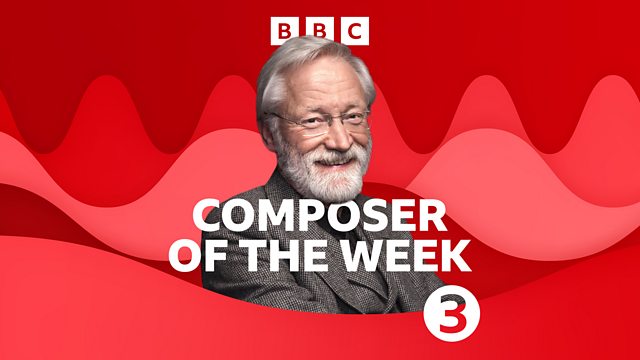
Joy through Suffering - The âHammerklavierâ Sonata
Donald Macleod explores Beethovenâs late Credo of Joy through Suffering and one of his greatest sonatas â the 'Hammerklavier'.
Donald Macleod explores Beethovenâs late Credo of Joy through Suffering and one of his greatest sonatas â the 'Hammerklavier'.
Beethoven remains one of the most lauded composers in history, famed for both his music, and for his personal triumph as a musician over the adversity of his catastrophic hearing loss. Over the course of this Composer of the Week series, Donald Macleod takes five of Beethovenâs most iconic works, spread out through the composerâs life, and tracks the journey of each of them. Through these stories, Donald discovers both the piecesâ direct importance to the composer, and also finds wider issues which each of them point to in the general life of a complex, and troubled man. From his carefully stage-managed debut on the Viennese scene as a young man, and his steadily increasing anguish at the loss of his hearing, and the betrayal by Napoleon of his political ideals, to the close relationship between Beethoven and his most loyal patron, and the composerâs late credo of joy through suffering which allowed him to continue to flourish artistically despite all of his personal demons.
In Thursdayâs programme, Donald explores another troubled period in Beethovenâs life, when the composer was tormented by loneliness, poor health, and his increasing deafness, and had to stop performing. Beethoven also found it difficult to find any artistic inspiration at this time, and struggled to compose. His adoption of a new credo, âJoy through Sufferingâ revived him creatively, leading to the composition of one of his greatest sonatas â the âHammerklavierâ.
Piano Sonata No 29 in Bb major, Op 106 âHammerklavierâ â II. Scherzo
Murray Perahia, piano
Adelaide, Op 46
Werner Güra, tenor
Christoph Berner, fortepiano
Sonata for Cello and Piano in D major, Op 102
Mischa Maisky, cello
Martha Argerich, piano
An die ferne geliebte, Op 98
Julian Prégardien, tenor
Christoph Schnackertz, piano
Symphony No 8 in F major IV. Allegro Vivace
Gewandhausorchester Leipzig
Riccardo Chailly, conductor
Piano Sonata No 29 in Bb major, Op 106 âHammerklavierâ â IV. Largo â Allegro risoluto
Mitsuko Uchida, piano
Produced by Sam Phillips for ´óÏó´«Ã½ Audio Wales & West
Last on
Music Played
-
![]()
Ludwig van Beethoven
Piano Sonata No 29 in Bb major, Op 106 "Hammerklavier" (2nd mvt, Scherzo)
Performer: Murray Perahia.- DG 4798353.
- DEUTSCHE GRAMMOPHON.
- 2.
-
![]()
Ludwig van Beethoven
Adelaide, Op 46
Performer: Christoph Berner. Singer: Werner Güra.- HARMONIA MUNDI : HMC 902217.
- HARMONIA MUNDI.
- 8.
-
![]()
Ludwig van Beethoven
Sonata for Cello and Piano in D major, Op 102, No 2
Performer: Mischa Maisky. Performer: Martha Argerich.- DG : 439-9342.
- DG.
- 11.
-
![]()
Ludwig van Beethoven
An die ferne Geliebte, op 98
Performer: Christoph Schnackertz. Singer: Julian Prégardien.- Myrios.
-
![]()
Ludwig van Beethoven
Symphony No 8 in F major (4th mvt, Allegro Vivace)
Orchestra: Gewandhausorchester Leipzig. Conductor: Riccardo Chailly.- DECCA : 478 2721.
- Decca.
- 10.
-
![]()
Ludwig van Beethoven
Piano Sonata No 29 in Bb major, Op 106 "Hammerklavier" (4th mvt)
Performer: Mitsuko Uchida.- PHILIPS : 475-8662.
- PHILIPS.
- 7.
Broadcast
- Thu 2 Nov 2023 12:00´óÏó´«Ã½ Radio 3
Beethoven Unleashed â the box set
What was really wrong with Beethoven?
Composers A to Z
Who knew? Five eye-opening stories from Composer of the Week
Five reasons why we love Parry's Jerusalem
What is the strange power of Jerusalem which makes strong men weep?
A man out of time â why Parry's music and ideas were at odds with his image...
The composer of Jerusalem was very far from the conservative figure his image suggests.
Composer Help Page
Find resources and contacts for composers from within the classical music industry.





